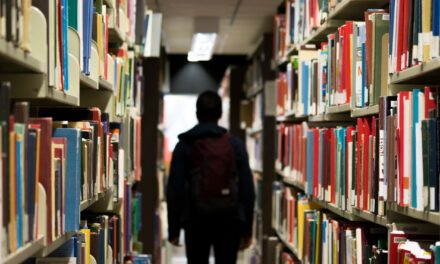Writer Laiba Saleem talks to first year students their opinions on AI in education
Over the past year, artificial intelligence tools like ChatGPT, have quickly become a normal part of student life at not just De Montfort University, but worldwide. From brainstorming essay ideas, to summarising lecture notes, to checking grammar and structuring assignments, students are finding new ways to integrate AI into their study routines.
“I admit that, yes, I have used AI to help me with constructive feedback and help me with grammar to use better vocabulary,” says a first year De Montfort University student who will remain anonymous.
‘I try my absolute hardest to avoid using AI for my studies. All throughout A-Levels I avoided it,” they explain. “The rare times I use it is to look over and mark my work.”
What once seemed like futuristic technology is now as accessible as Google, and only a few taps away on your laptop or your phone. For many, it is an efficient fix for confusion and stress. However, for others, it has become a creative companion that helps turn thoughts into polished work.
AI in student life
Most students admitted to using AI tools at-least once. Usually, to generate essay ideas, check their grammar or explain topics they do not understand.
“I used ChatGPT to direct me to sources when I was doing my A-Level history coursework,” said another student who remained anonymous. However, some students argue otherwise. “I have never used AI for studies, I’d prefer original thought and practice finding sources properly, and personally, I do not trust robots.” says another student.
Out of everyone I interviewed, only one admitted to not using any for of AI. It’s a clear sign of how quickly this technology has become a normal part of student life.
Friend or foe?
Many students agreed that AI itself is not the problem, it is specifically how you use it. Most believe that ‘balance is key’ and that relying too much on AI can make you too dependent. On the flip side, using it wisely and responsibly can make studying more efficient.
“I would say it’s both [Friend and Foe] as it gives both reliable and factually incorrect information,” says the first student, “However, it most likely would lead to co-dependancy and lack of developmental ability to find answers.
“I think it depends on how often you use it. If you use it for every task, you will probably become too dependent on it, but if you only use it occasionally and to do small tasks, it can be a helpful learning tool.” they added.
The future of AI in education
When asked how universities should ensure students use AI responsibly, most agreed that simpler, clearer guidance is essential. “Ensure that anytime AI is used for projects, it’s listed as a reference. Lecturers can also post information on which prompts are acceptable etc,” says another first year student. They suggested that being transparent needs to be required, not optional. Others agreed with this, arguing that lectures should set clear expectations through clear policies and bioundaries.
Many students also felt as though the problem is not AI itself but how it’s used. “By letting students know how to actually use it, for example instead of just copying and pasting what AI said, read it and write it out in your own words instead,” says a first year student. Another added that universities should be more particular when asking students for academic references for theur information to encourage original thought and accountability.
These views point to one thing:students do not want to necessarily ban AI they just want guidance on how to use it properly and in a fair manner.
“It all depends on the user, I think it can be so helpful but its already dominating so many other industries, who is to say that in education it would be a friend, when it doesn’t even have a positive reaction in the first place, taking a lot of creative roles in society,” says a first year student.
AI in the arts
Beyond the classroom, AI is also beginning to transform the creative industries and not everyone is happy about it. When asked about the rise of Tilly Norwood, the world’s first AI actress, one drama student wasn’t very happy about it. “Creating AI actors is, honestly, so stupid, it hurts.” she says before adding, “We’re not running short on actors, in fact there are loads of actors out there that are practically yearning to be on screen or on the stage.”
“AI will never be able to portray human emotion because it doesn’t actually feel anything.”
They went on to express her fear that AI performers could ruin film and drama as a whole and cause a downfall of theatre art. For her, the issue goes beyond technology, it is about the respect of the craft.
“I fear that her [Tilly Norwood] existsencewill be the start nof wiping actrresses away when women have worked so hard for their spot.” she says, expressing her concern.
Her worries capture a deeper anxiety which is felt by many in the creative world. As AI becomes more lifelike, what place will there be for real human emotion?
AI is quickly becoming a part of everyday life, but opinions stay divided. Some see it as a useful study tool, while others worry it is making people to co-dependant. Whether in education or the arts, one thing is clear. Technology cannot replace human creativity and emotion. The key for De Montfort University students, it seems, will be learning to use AI wisley, without losing their own voice.





